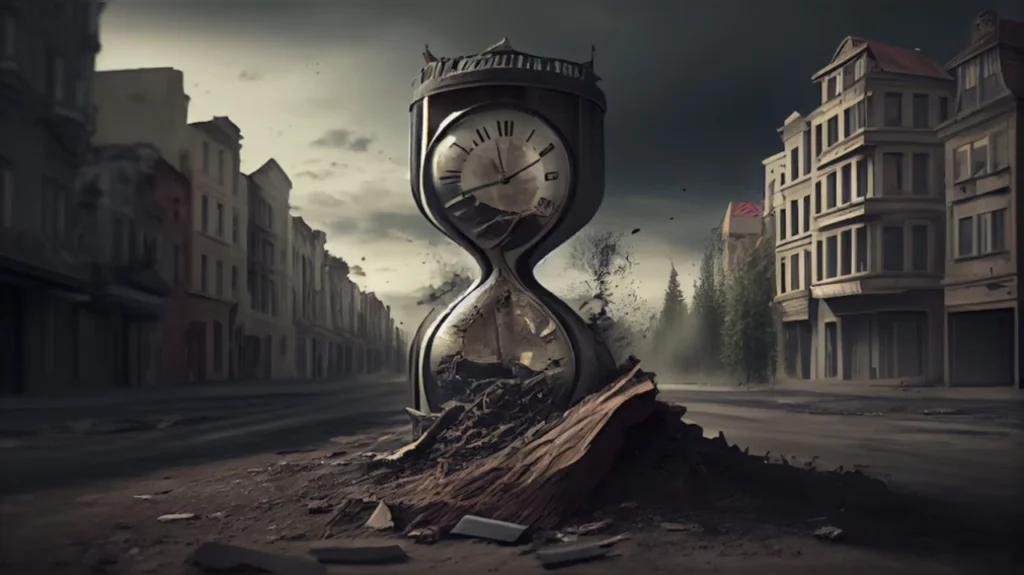
Time travel has long captivated the human imagination, stirring our curiosity and prompting countless questions about the nature of time, causality, and the universe itself. From H.G. Wells’ “The Time Machine” to popular films like “Back to the Future” and the more recent “Interstellar,” the idea of moving through time has sparked a rich tapestry of scientific theories, philosophical debates, and cultural narratives. This article delves into the concept of time travel, examines theoretical frameworks, and explores its representation in popular culture.time travel
The Concept of Time
Before diving into time travel, it is essential to understand the nature of time itself. Traditionally, time is viewed as a linear progression of events: past, present, and future. This linear view aligns with our everyday experiences and the second law of thermodynamics, which suggests that entropy increases over time, giving a sense of an arrow of time that moves in one direction.
However, time is also understood in more complex ways, especially in physics. Albert Einstein’s theory of relativity revolutionized our understanding of time, suggesting that it is not an absolute entity but is relative to the observer’s speed and the presence of gravitational fields. This notion opens the door to possibilities beyond our intuitive grasp of time as a fixed continuum.
Theoretical Foundations of Time Travel
- Einstein’s General Relativity
Einstein’s theory of general relativity allows for the bending of spacetime, leading to the idea that time travel could be theoretically feasible under certain conditions. The concept of wormholes—tunnels through the fabric of spacetime—suggests that it might be possible to create shortcuts between different points in time and space.
- Closed Timelike Curves
In certain solutions to Einstein’s equations, such as those involving rotating black holes (Kerr black holes), closed timelike curves (CTCs) arise. These are paths through spacetime that loop back on themselves, theoretically allowing for travel to the past. However, CTCs present significant paradoxes, such as the famous grandfather paradox, where a time traveler could potentially prevent their own existence by altering past events.
- Quantum Mechanics and Many-Worlds Interpretation
Quantum mechanics introduces another layer of complexity. The many-worlds interpretation posits that every decision creates a branching of realities, suggesting that time travel could result in an alternate timeline rather than altering the original. This interpretation alleviates some paradoxes but raises questions about the nature of identity and continuity across timelines.
- Time Dilation
Another fascinating aspect of time travel arises from the phenomenon of time dilation, a consequence of special relativity. As an object approaches the speed of light, time for that object slows relative to an outside observer. This effect, while not traditional time travel, means that astronauts on high-speed journeys would experience less passage of time compared to people on Earth, essentially “traveling” into the future.
Cultural Impact of Time Travel
Time travel has profoundly influenced literature, film, and television, often serving as a vehicle for exploring complex themes such as fate, free will, and the nature of reality.
- Literature
H.G. Wells’ “The Time Machine” is often credited as the seminal work of time travel fiction. Through the journey of the Time Traveller, Wells not only entertains but also critiques Victorian society, illustrating the potential consequences of unchecked technological advancement.
In contemporary literature, authors like Audrey Niffenegger (“The Time Traveler’s Wife”) and Stephen King (“11/22/63”) explore personal and historical dimensions of time travel, emphasizing its emotional and moral implications.
- Film and Television
Time travel in film has reached iconic status. “Back to the Future” combines humor, adventure, and science fiction, captivating audiences with the idea of altering one’s past. The film’s depiction of a time machine disguised as a DeLorean became a cultural phenomenon.
In contrast, films like “Interstellar” explore more profound scientific concepts, intertwining time travel with themes of love, sacrifice, and the survival of humanity. The portrayal of time dilation and its emotional ramifications adds a layer of depth to the narrative.
Television shows like “Doctor Who” have made time travel a staple of popular culture. The Doctor’s adventures across time and space blend science fiction with elements of horror, romance, and adventure, creating a rich narrative universe that engages audiences for decades.
- Video Games
Time travel has also found its way into the realm of video games. Titles like “Chrono Trigger” and “The Legend of Zelda: Ocarina of Time” utilize time travel mechanics to enhance gameplay and storytelling. Players navigate multiple timelines and alternate realities, making choices that affect the outcome of the game, effectively allowing them to experience the consequences of their actions across different time periods.
Philosophical Implications
The concept of time travel raises significant philosophical questions. If one could travel back in time, would they have the right to change history? Would altering the past create a better future, or would it lead to unforeseen consequences? These questions challenge our understanding of morality, free will, and the nature of reality.
The grandfather paradox serves as a classic example of these dilemmas. If a time traveler were to go back and prevent their grandfather from meeting their grandmother, would the time traveler cease to exist? This paradox invites discussions on causality and the linear nature of time.
Conclusion
Time travel remains a captivating concept that straddles the boundaries of science fiction and theoretical physics. It prompts us to consider profound questions about the nature of time, our place in the universe, and the moral implications of altering our past or future. While practical time travel remains in the realm of speculation, its cultural impact is undeniable, influencing literature, film, and philosophical discourse. As our understanding of the universe evolves, so too will our exploration of time travel, continuing to inspire curiosity and wonder about what lies beyond the boundaries of time itself.